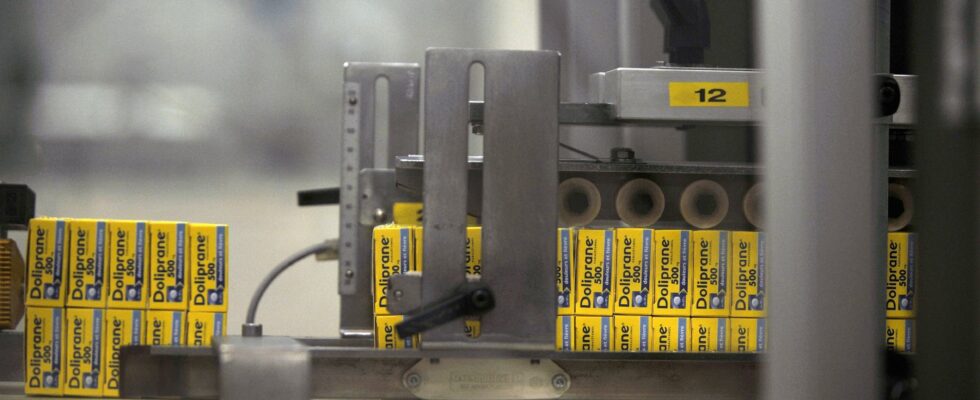The president of Sanofi France, Audrey Duval, guaranteed this Thursday, October 17 on RTL the “sustainability” of jobs, production sites and Doliprane, before the start of a strike movement by several unions in the group to oppose on the sale of its Opella subsidiary.
Asked about the unions’ fears regarding the anticipated sale of this entity of non-prescription consumer products, which markets around a hundred brands including Doliprane, to the American investment fund CD & R, Fanny Duval said she “understands the concerns”. “We hear them and afterwards, it’s normal that they have these questions since in fact, we are in the course of an operation which has not been finalized. So, in fact, social dialogue and the negotiation process “hasn’t started,” said Audrey Duval.
“I guarantee Doliprane in pharmacies for the French” as well as the “sustainability of jobs and production sites” in France over “several years”, she affirmed, while the CFDT and CGT unions of Sanofi called Wednesday to a renewable strike starting this Thursday. The unions fear a “social breakdown” in the 1,700 jobs that Opella has on French soil, including 500 on its site in Compiègne (Oise) and 250 in its factory in Lisieux (Calvados), entirely dedicated to Doliprane. The strike will be particularly marked on these two sites, according to the unions.
The Opella headquarters “will remain in France”
In this possible transaction, the outlines of which are still in the discussion phase, “Sanofi will remain a 50% shareholder”, which gives it a “right of veto over extremely strategic decisions of the group, such as Doliprane”, underlined Fanny Duval. She insisted that Opella’s headquarters, management team and employees at its French sites “will remain in France”.
This week, the government asked stakeholders for guarantees in terms of maintaining employment, the industrial footprint and the location of the headquarters in France. “Our objective is not to block the sale, it is to succeed through dialogue in obtaining written commitments. And if we cannot obtain written commitments, we do not prohibit ourselves from using all the other levers”, repeated Maud Bregeon, the government spokesperson, on Sud Radio.
Calls to block the sale
In the opposition, calls to block the sale are becoming urgent. The socialist deputy of Landes Boris Vallaud recalled, on Public Senate, that the State had the tools to “enforce itself”: “the Montebourg decree can be used, can go from the establishment of conditions, to the ban on sale. For his part, the coordinator of La France insoumise, Manuel Bompard, estimated on franceinfo that “if we want to guarantee our sovereignty, there is the possibility of using the Montebourg decree to block the sale”.
Interviewed Tuesday in Les Echos on a possible entry into the capital of a public actor such as the public investment bank Bpifrance, the chairman of the board of directors of Sanofi, Frédéric Oudéa, assured that “all subjects (were) on the table”. Bpifrance, “this is not our preference”, Audrey Duval said this Thursday.
Opella has produced up to 450 million boxes of Doliprane in 2023 for the French market and 20 million euros are currently invested at the Lisieux site to increase production by 140 million boxes per year from 2026. Doliprane is 97% sold in France, a country which only represents around 10% of Opella sales and its second largest market behind the United States. In addition to Doliprane, Opella also markets the brands Dulcolax, Lysopaïne, Maalox and Novanuit in France.
